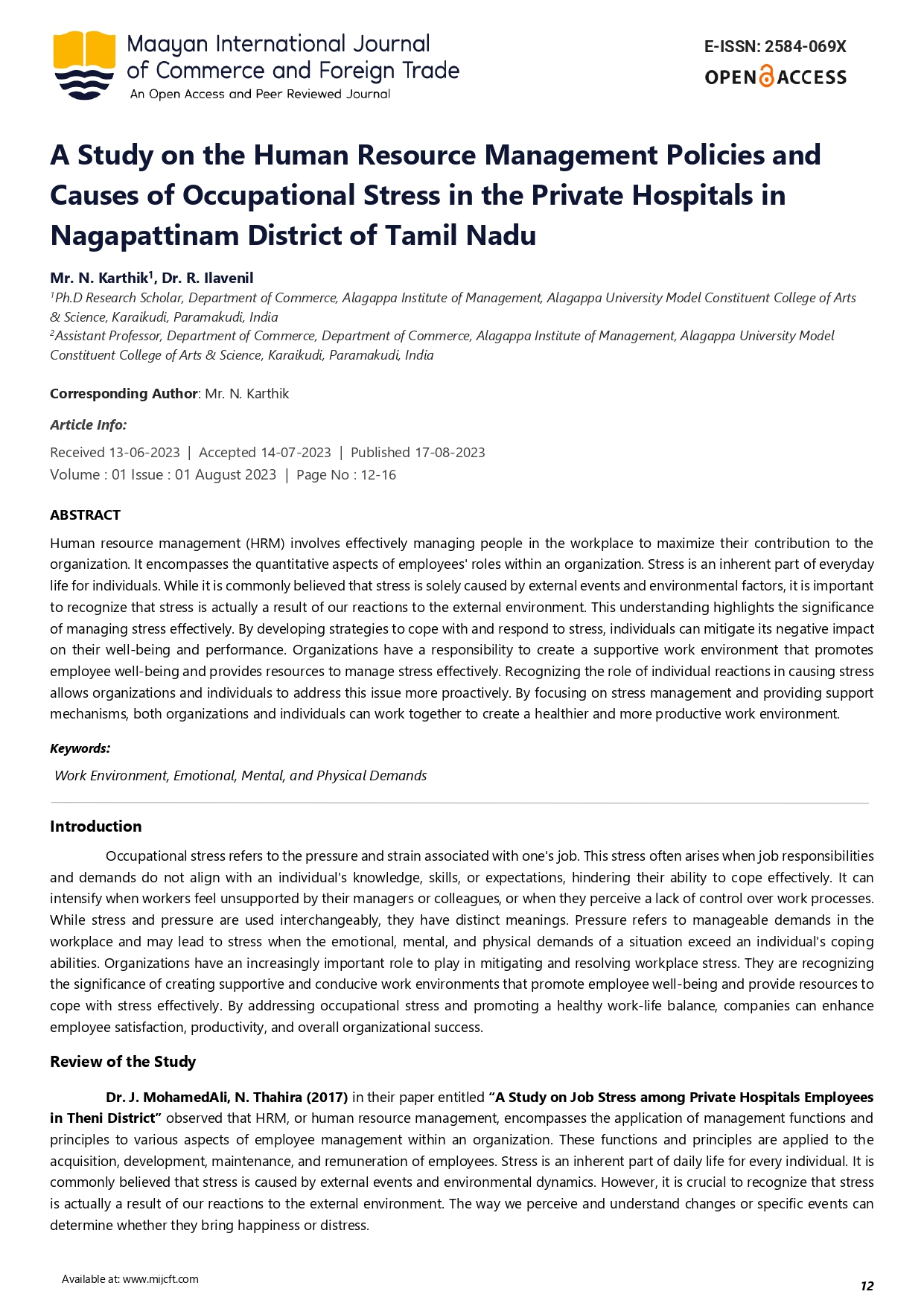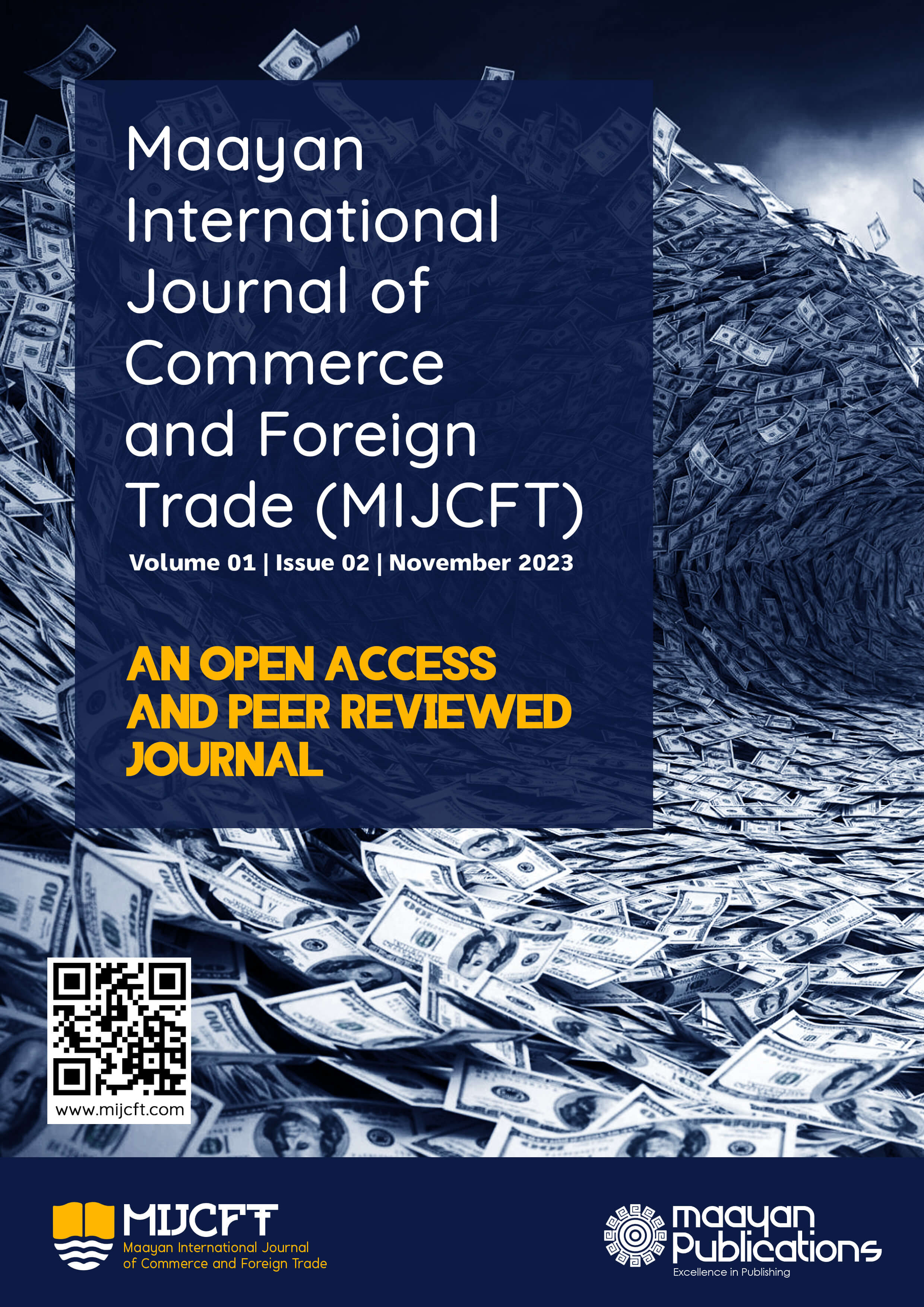A Study on the Human Resource Management Policies and Causes of Occupational Stress in the Private Hospitals in Nagapattinam District of Tamil Nadu
Keywords:
Work Environment, Emotional, Mental, Physical DemandsAbstract
Human resource management (HRM) involves effectively managing people in the workplace to maximize their contribution to the organization. It encompasses the quantitative aspects of employees' roles within an organization. Stress is an inherent part of everyday life for individuals. While it is commonly believed that stress is solely caused by external events and environmental factors, it is important to recognize that stress is actually a result of our reactions to the external environment. This understanding highlights the significance of managing stress effectively. By developing strategies to cope with and respond to stress, individuals can mitigate its negative impact on their well-being and performance. Organizations have a responsibility to create a supportive work environment that promotes employee well-being and provides resources to manage stress effectively. Recognizing the role of individual reactions in causing stress allows organizations and individuals to address this issue more proactively. By focusing on stress management and providing support mechanisms, both organizations and individuals can work together to create a healthier and more productive work environment.
Downloads
References
- Mohamed Ali, J & Thahira, N. (2017). A Study on Job Stress among Private Hospitals Employees in Theni District. International Journal of Research – GRANTHAALAYAH, 5(7), July, ISSN 2350-0530 (O), ISSN 2394-3629(P) DOI: 10.5281/zenodo.840407
- Meenakshi, R, Nagarajan, S & Prakash, S. (2022). An exposure of occupational stress among employees working in selected private Hospitals. PRA International Journal of Economics, Business and Management Studies (EBMS), 9(6), June.
- Nedumaran, G. (2020). Students Awareness of Industrial Linkages among the Universities. Our Heritage, 68.
- Kanagavalli, G. (2021). Assessment on the Market Prospective of Freight Forwarding Business with Special Reference to Tamilnadu. ComFin Research, 10(2), 24-29.
- Nirmal Kumar, S. (2021). A Study on Role Inclusive Leader in Drioving Performance in Global Organsation (MNCs) in India, ComFin Research, 10(3), 1-7.
- Arumugam, U. (2023). A Study on Agricultural Entrepreneurship in Tamil Nadu. Shanlax International Journal of Management,10 (4), 17-22.
- Levina, N & Vaast, E. (2004). The emergence of boundary spanning competence in practice: Implications for implementation and use of information systems. MIS Q, 29, 335–36.
- B D, Christens. (2012). Toward relational empowerment. Am. J. Community Psychol, 50, 114–128.
- Dyer, WG, Wilkins, AL. (1991). Better Stories not better constructs, to generate better theory: A rejoinder to eisenhardt. Acad. Manag. Rev., 16, 613–619.

Downloads
Published
How to Cite
Issue
Section
License
Copyright (c) 2023 Maayan International Journal of Commerce and Foreign Trade

This work is licensed under a Creative Commons Attribution 4.0 International License.


